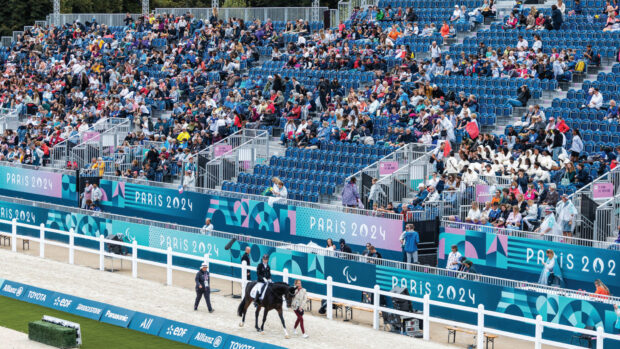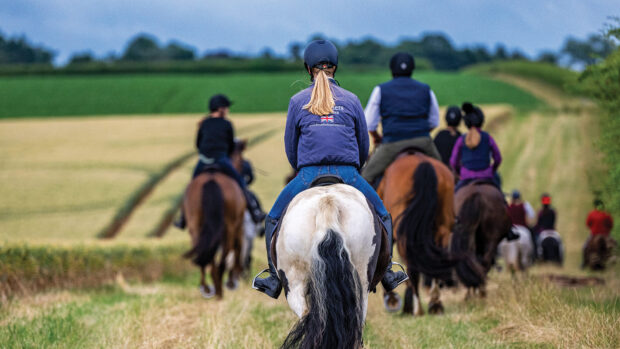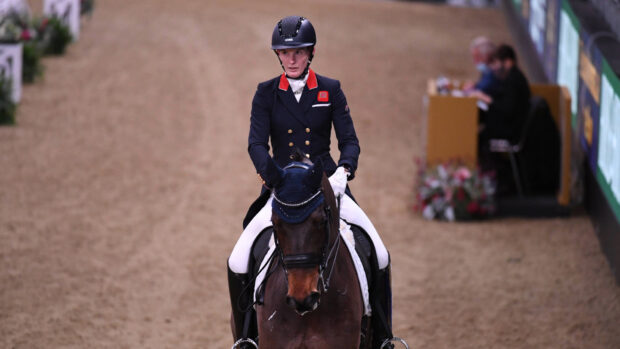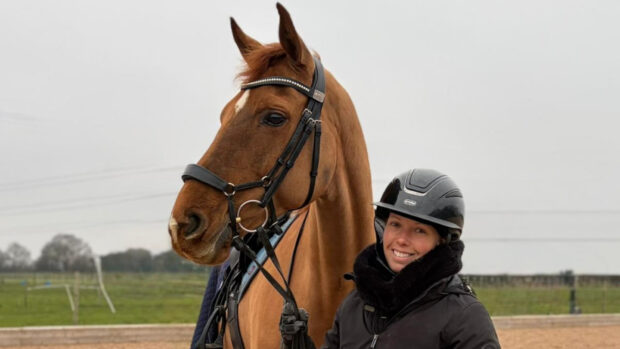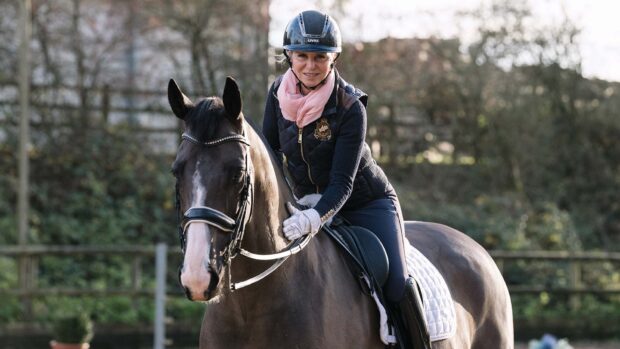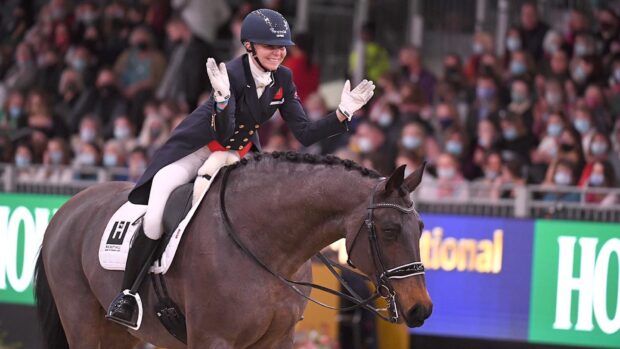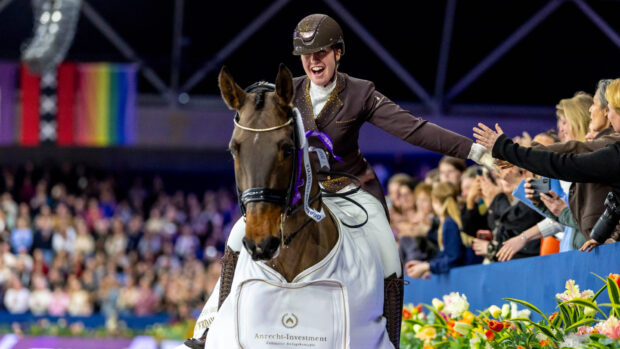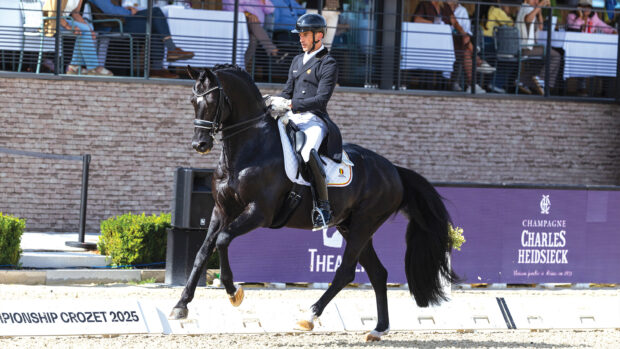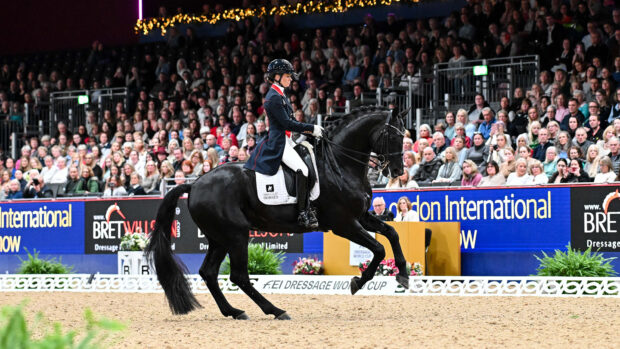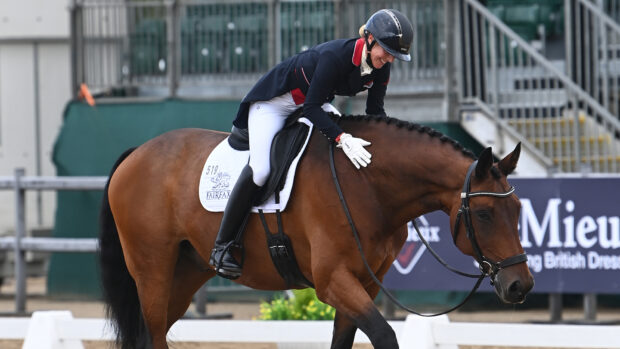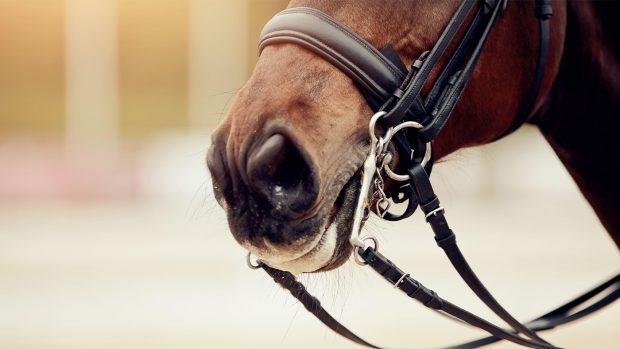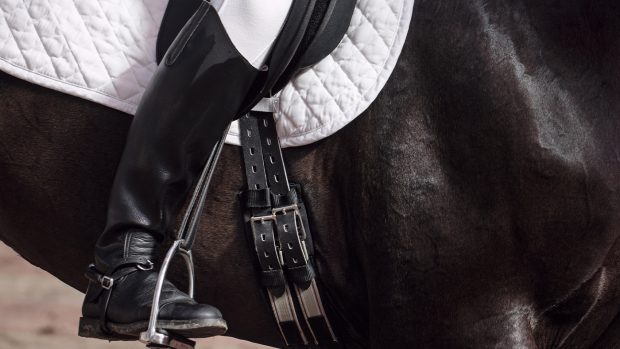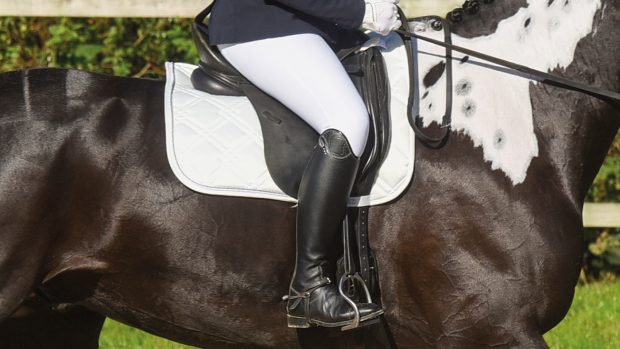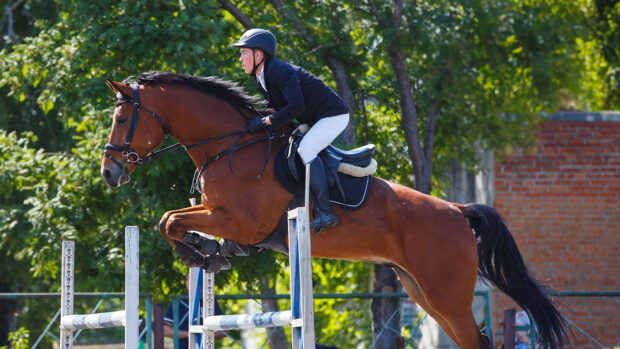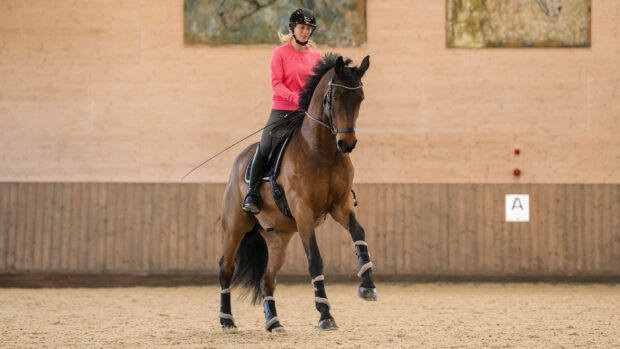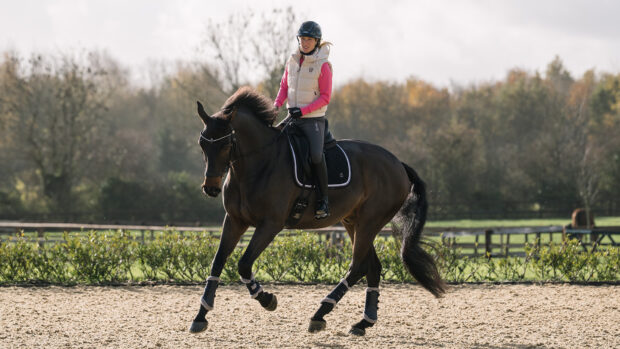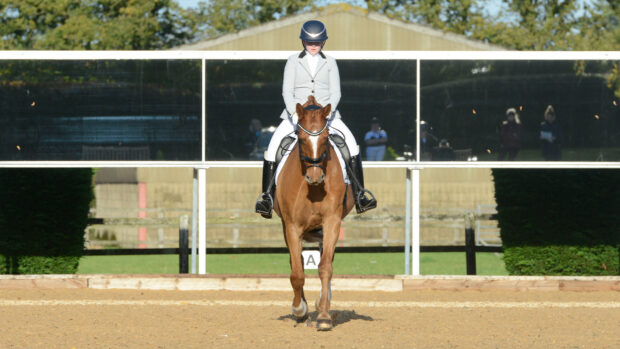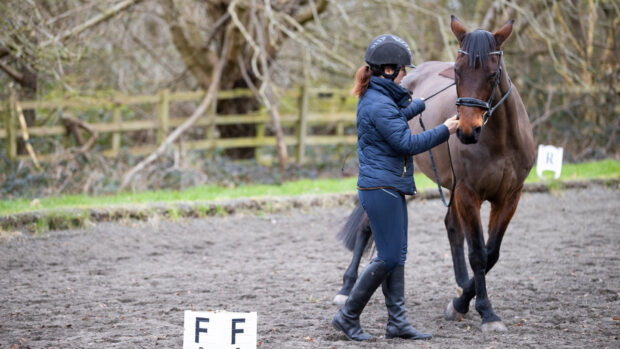Dressage
It’s also a place to keep in touch with dressage riders’ stories, get useful dressage training tips, find out about the latest kit and clothing you’ll want to buy, and watch our recent dressage videos.
Dressage top stories
-
 Dressage
Dressage -
 Opinion
OpinionWe shouldn’t take riding horses for granted and we should tell others why we love it, says Pammy Hutton
-
-
 Dressage
Dressage‘I’ve just got to bite the bullet and do it’: British grand prix dressage rider returns to the UK to set up on her own
-
 Dressage
Dressage‘She’s gorgeous’: top British rider eyes World Championships with exciting new ride
-
 Dressage
Dressage‘He gives me Valegro vibes’: meet Louise Bell’s exciting rising star Peaky Blinder
-
 Dressage
Dressage‘A king in global dressage breeding’: thousands vote famous sire of top grand prix horses for posthumous honour
-
 Dressage
Dressage‘I loved every second of him’: heartbroken farewell to horse who went to the top in two disciplines
-
 Dressage
DressageBecky Moody and Jagerbomb strike a chord with World Cup harmony and fairness award
Dressage opinion from H&H columnists
-

We shouldn’t take riding horses for granted and we should tell others why we love it, says Pammy Hutton
-

The moments, medals and horses that defined the 2025 dressage season
-

Pammy Hutton calls for ‘an X Factor-type operation for equestrian sport’
-

‘It’s time to make people curious about dressage by showing its beauty when done well’, says Laura Tomlinson
Tack and clothing
-

9 smart double bridles you can order today
-

The best short dressage girths for horses at every level
-
-

17 dressage saddles to dream about
-

11 stylish pairs of men’s competition breeches to suit all budgets
-

15 of the best competition breeches to wear in the saddle this season
-

From tweed to tech: 7 best men’s show jackets for style and performance in the ring
Training tips
-

How to ride extended canter for higher marks, balance and control – with advice from Laura Tomlinson
-

How to ride better downward transitions for top marks with advice from an Olympic medallist
-
-

How to ride the perfect centre line, with tips from Olympic medallist Laura Tomlinson
-

Why in-hand work could be the missing piece in your dressage training: four simple exercises to build your horse’s strength, suppleness and focus
All about dressage
The sport of dressage involves horse and rider performing a pre-set pattern of movements appropriate to their current level of training. In freestyle competitions riders have to perform set movements, but can do so in any order and at any place in the judging arena and this is set to the rider’s choice of music.
In order to compete successfully in dressage, the horse must be expressive yet obedient and able to maintain the correct body form without any signs of stiffness. The sport has been described by the layman as ‘equine ballet’ and ‘dancing horses’.
Competition in the UK, which is overseen by governing body British Dressage, starts at intro level, where only walk and trot movements are performed, right through to grand prix, which is the level seen at the Olympic Games.
There are dressage competitions available for disabled riders, although some of the top para dressage riders also compete in able-bodied competitions. Britain has an outstanding record in international para dressage championships.
